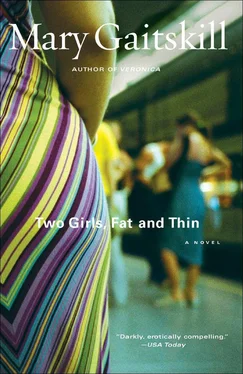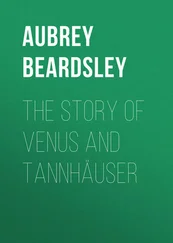Mary Gaitskill - Two Girls, Fat and Thin
Здесь есть возможность читать онлайн «Mary Gaitskill - Two Girls, Fat and Thin» весь текст электронной книги совершенно бесплатно (целиком полную версию без сокращений). В некоторых случаях можно слушать аудио, скачать через торрент в формате fb2 и присутствует краткое содержание. Год выпуска: 2012, Издательство: Simon & Schuster, Жанр: Современная проза, на английском языке. Описание произведения, (предисловие) а так же отзывы посетителей доступны на портале библиотеки ЛибКат.
- Название:Two Girls, Fat and Thin
- Автор:
- Издательство:Simon & Schuster
- Жанр:
- Год:2012
- ISBN:нет данных
- Рейтинг книги:5 / 5. Голосов: 1
-
Избранное:Добавить в избранное
- Отзывы:
-
Ваша оценка:
- 100
- 1
- 2
- 3
- 4
- 5
Two Girls, Fat and Thin: краткое содержание, описание и аннотация
Предлагаем к чтению аннотацию, описание, краткое содержание или предисловие (зависит от того, что написал сам автор книги «Two Girls, Fat and Thin»). Если вы не нашли необходимую информацию о книге — напишите в комментариях, мы постараемся отыскать её.
Review) create a haunting and unforgettable journey into the dark side of contemporary life and the deepest recesses of the soul.
Two Girls, Fat and Thin — читать онлайн бесплатно полную книгу (весь текст) целиком
Ниже представлен текст книги, разбитый по страницам. Система сохранения места последней прочитанной страницы, позволяет с удобством читать онлайн бесплатно книгу «Two Girls, Fat and Thin», без необходимости каждый раз заново искать на чём Вы остановились. Поставьте закладку, и сможете в любой момент перейти на страницу, на которой закончили чтение.
Интервал:
Закладка:
“Tell me,” I said, applying fork to cake once more, “what do you think of Granite’s ultrareality work?”
Justine had expressed herself carefully at first and then more boldly as it gradually dawned on her that as long as she appealed to Dorothy’s taste for drama, maximum impact, and seriousness, she could say almost anything to her. She wanted to appeal to her intelligence and make her realize that she herself was intelligent too — although she didn’t know why she wanted to do either of these things. She had watched Dorothy’s face as she talked and saw a lot of activity transpiring behind its surface, but she couldn’t read its nature. She was a little shamed by the way she was slanting her words to make it sound as if she took Granite more seriously than she did; ordinarily she felt that this was the prerogative of the journalist, but in this case it seemed unfair. These feelings were further complicated by a skulking wish that she did believe in Definitism in the way Dorothy and Max Nolte did, and her misleading words were in part a playacting meant to momentarily deceive herself as well as her subjects.
“The ultrareality theory,” began Dorothy, enthusiastically mashing her cake crumbs into the tines of her fork, “was the most daring and controversial aspect of Granite’s work. It came about in answer to the challenge made to an objective world view by a certain kind of person. For example, how can you pin reality down like that, how can you restrict what is real? How can all the conflict between people be boiled down to self versus collectivism?”
In between rhetorical questions, she put her fork into her mouth, suctioned off the compressed cake and began methodically to gather more. With each question, her voice seemed to get louder, as if each phrase carried her closer to the center of her imaginary Definitist world in which she, Dorothy Never, was a participant in a complex drama with global import. Justine glanced nervously at the lone dark-haired girl sitting near them, again embarrassed to be heard and seen having a conversation with this crank in Sears clothing.
“Then there’s always the random chaos argument; if logic and reason are the strongest, noblest factors in human life, why is the world such a disaster of chaos and illogic?”
“Well so many people are illogical, for one thing,” said Justine helpfully.
“Yes!” Dorothy’s eyes bulged with excitement, and Justine was again ashamed of creating this artificial bond of assonance.
Dorothy put down her fork; she had by this time annihilated the cake crumbs. “Now the kinds of objections and points of view that I just listed are — were, I mean — totally alien from Granite’s way of thinking. Her thought processes were so clear, so courageous that she simply went straight for the most fundamental elements of human life and psychology and wasn’t stopped by the complexity that stymies most of us. Of course there is tremendous complexity in human interaction and many different things going on, some of them apparently contradictory. But they are all — all! — linked to those fundamental life issues and the choice we must make between life and antilife. Every human act, every thought, every feeling has in it a direction one way or the other — weakness, collectivism, mediocrity, death, or strength, beauty, selfishness, life. The connections may not be apparent at first, but they are there. You, for example. Your choice to work as a free-lance writer instead of being on staff — that is a choice that speaks of your strength, your need to be apart from the herd. It is a choice for life.” Dorothy took a breath to avoid apoplexy and went on. “Even inanimate objects are statements for or against life. These chairs we’re sitting in — which I think are wonderful by the way, as is this whole place; I’m glad you picked it — have certain qualities of refinement, sensibility, statements in their contours and curves about the way life should be lived, which connect them to the abstracts of honor and graciousness without which life wouldn’t be worthwhile. The desserts we just ate — they embody the qualities of lightness, gentleness, sweetness, and comfort — moral qualities because when you decide whether or not to have these things in your life, you make a moral choice. Moral choice is not ambiguous; it is as concrete as these chairs we sit in. There is no chaos, except that which we create ourselves.”
Dorothy’s face radiated certainty and pride, as if she were standing on a mountain peak with the sun streaming down on her, as in one of those car commercials that, by some weird twist of sensibility, place a Cadillac on a mountain peak in the Sierras where fawning cameras circle around it as if it had just found a cure for cancer.
Hopeless, thought Justine, as are most attempts to quantify and contain. Still, she had to admit, there was something consoling, seductive even, about this vision of chairs and pieces of cake suspended, along with everything else, in a glistening web of order that connected them to all the morality in the universe. For all Anna Granite’s trumpeting about arrogance and elitism and how great it was, her ideas were ingenuously humble and populist. In her vision, there was nothing absurd about a culture that broadcasts images of a car standing triumphant on a mountain peak as if it were a genius who had cured cancer — the car was, after all, connected to the same abstractions of greatness as the scientist and, in a way, represented the scientist! And, after all, you couldn’t very well duplicate the scientist and sell him to people, could you?
“I’m glad you brought that up,” said Justine, taking the tape out, turning it over and popping it back in, “because you clarified some things for me. But I have to change the subject since I have to go soon.”
“By all means,” said Dorothy. “I think I’d like to see the menu again.”
“I was reading the paper the other day and I came across this guy who’s been given a pretty high position in the city financial administration who was quoted as saying Anna Granite was one of his early influences. Did you ever meet Knight Ludlow?”
When she asked that question , I had the crazy thought that she knew, that she’d interviewed him and he’d told her, and now she just wanted to watch my face. But then she said, “I’ve tried to interview him but I can’t get through by phone or mail. It’s not essential, but since he’s so highly placed, it would be good to mention him. So I wondered if you knew anything of interest about him. Off the record, if you like.”
Either she had calmed herself, called her blind groping energies to huddle around her and thus presented a more stable appearance, or I had adjusted to her neurotic presence. Because suddenly her white, pretty face moved me almost to tears; the childish sweetness of her demeanor was like silver thread guided by the bright needle of her voice. I wanted to be close with her. I had wanted to be close with her from the moment I met her. “This is off the record,” I said, a lump in my throat.
She turned off the tape recorder.
“I had an affair with Knight Ludlow.” I had an image of myself sitting there in front of her sobbing but I was dry-eyed. A cup of cocoa loomed in the back of my mind. I signaled the waitress. “It was the only affair I’ve ever had in my life.”
She stared at me, her serene expression scattered by surprise. When her face began to re-form itself, I was surprised that its new expression seemed to be pity.
“I’m not ashamed of it, quite the reverse. It can’t be made public because at the time he was engaged to be married, and he did get married shortly afterward. He could be with her still, so I have to maintain discretion.”
Justine said she understood.
Читать дальшеИнтервал:
Закладка:
Похожие книги на «Two Girls, Fat and Thin»
Представляем Вашему вниманию похожие книги на «Two Girls, Fat and Thin» списком для выбора. Мы отобрали схожую по названию и смыслу литературу в надежде предоставить читателям больше вариантов отыскать новые, интересные, ещё непрочитанные произведения.
Обсуждение, отзывы о книге «Two Girls, Fat and Thin» и просто собственные мнения читателей. Оставьте ваши комментарии, напишите, что Вы думаете о произведении, его смысле или главных героях. Укажите что конкретно понравилось, а что нет, и почему Вы так считаете.












